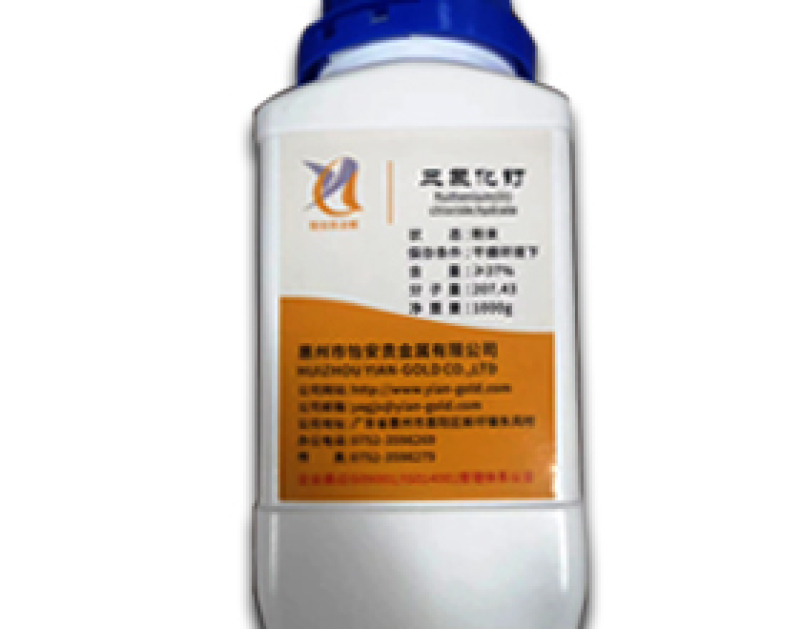Ruthenium trichloride is a chemical substance with the molecular formula RuCl3. It is a glossy crystal particle, generally gray brown or dark red in color, corrosive, easily deliquescent, soluble in water, alcohol, acetone, and ethyl acetate, and decomposes in hot water. Used for important chemical raw materials such as multiphase catalysis or homogeneous catalysis, electroplating, electrolytic anodes, and electronics industry.
Ruthenium trichloride, also known as ruthenium chloride. RuCl3=207.43, red brown or black leaf shaped crystals, easily hygroscopic. Relative density 3.11, decomposes into elemental substances above 500 ℃. Insoluble in cold water and carbon disulfide, decomposes in hot water, insoluble in ethanol, and soluble in hydrochloric acid. When reacting with potassium iodide solution to form iodide precipitate, hydrogen sulfide is introduced into the solution to precipitate ruthenium trisulfide, which can chemically react with ammonia, potassium cyanide, and potassium nitrite to form corresponding ammonia, cyanide, and nitroso complexes. When reacting with sodium amalgam or titanium trichloride, it is reduced to blue divalent ruthenium ions. At high temperatures, metal ruthenium can be directly combined with chlorine, or hydrochloric acid can be added to ruthenium hydroxide, which can be obtained through evaporation, concentration, and crystallization. Used for the determination of sulfites, manufacturing of chlororuthenium salts, and as electrode coating materials.











